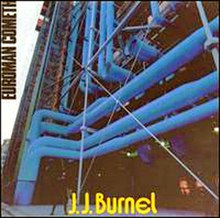
The Stranglers are an English rock band who emerged via the punk rock scene. Scoring 23 UK top 40 singles and 19 UK top 40 albums to date in a career spanning five decades, the Stranglers are one of the longest-surviving bands to have originated in the UK punk scene.
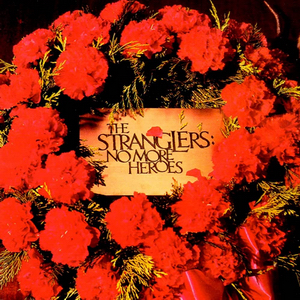
No More Heroes is the second studio album by English new wave band the Stranglers. It was released on 23 September 1977, through record label United Artists in most of the world and A&M in the United States, five months after their debut album, Rattus Norvegicus.

The Raven is the fourth studio album by English new wave band the Stranglers, released on 15 September 1979, through record label United Artists.
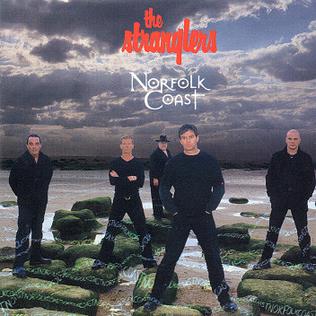
Norfolk Coast is the fifteenth studio album by the Stranglers, and was released on 16 February 2004 by EMI's Liberty Records label, making it their first new album recorded for the company in 23 years. It was released six years after their last studio album Coup de Grace and was their first official studio album with new guitarist Baz Warne, and also the last album to feature Paul Roberts on lead vocals. Norfolk Coast peaked at No. 70 in the UK Albums Chart in February, for one week's duration in that listing.
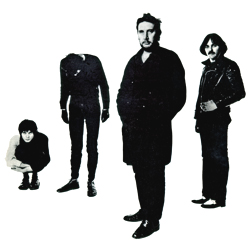
Black and White is the third studio album by English new wave band the Stranglers. It was released on 12 May 1978, through record label United Artists in most of the world and A&M in America.
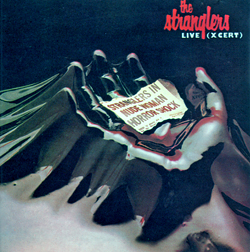
Live (X Cert) is the first live album by the Stranglers, released in February 1979 by United Artists. It contains tracks recorded at The Roundhouse in June and November 1977 and at Battersea Park in September 1978.
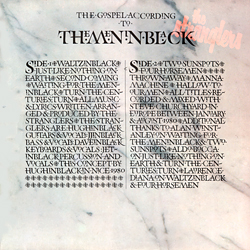
The Gospel According to the Meninblack is the fifth album by English rock band the Stranglers, an esoteric concept album released 9 February 1981 on the Liberty label. The album deals with conspiratorial ideas surrounding alien visitations to Earth, the sinister governmental men in black, and the involvement of these elements in well-known biblical narratives. This was not the first time the Stranglers had used this concept; "Meninblack" on the earlier The Raven album and subsequent 1980 single-release "Who Wants the World?" had also explored it.

Nosferatu is an album by Hugh Cornwell of the Stranglers and Robert Williams, drummer in Captain Beefheart's Magic Band. It was released on 16 November 1979 by United Artists.
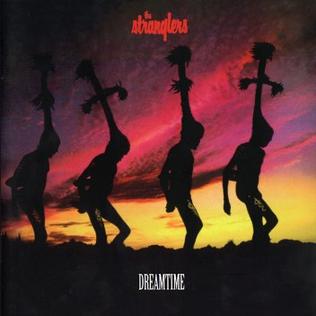
Dreamtime is the ninth studio album by the Stranglers, released in 1986 by Epic Records. The title track was inspired by a belief of the aboriginal peoples of Australia called Dreamtime.

10 is the tenth studio album by English rock band the Stranglers, released in March 1990 by Epic Records. It was the last to feature guitarist/lead singer Hugh Cornwell. 10 peaked at No. 15 and spent four weeks in the UK Albums Chart.

Live at the Hope and Anchor is a live album by the Stranglers, released on 9 March 1992 by EMI. It consists of an entire set from a concert at the Hope and Anchor pub in Islington, North London, recorded on 22 November 1977.

The Stranglers and Friends: Live in Concert is a live album by English rock band the Stranglers, released in 1995 by Receiver Records. In 2002, the album was re-released on the Castle Music label, digitally remastered from the original master tapes with new artwork and sleeve notes.
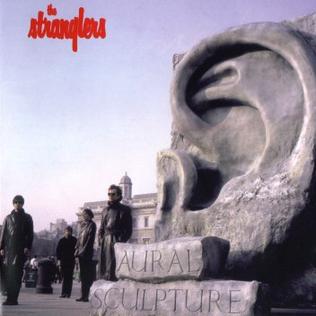
Aural Sculpture is the eighth studio album by the Stranglers, released in November 1984 by Epic Records. It was also the name given to a one-sided 7-inch single given free with a limited number of copies of their Feline album in 1983. The "Aural Sculpture Manifesto" on the 7" single was played before the Stranglers appeared on stage during concerts during both the 1983 "Feline" tour and the 1985 "Aural Sculpture" tour.

Written in Red is the thirteenth studio album recorded by the Stranglers, released in January 1997 through the When! label. It was co-produced by Gang of Four's Andy Gill.

Jean-Jacques Burnel is an English musician, producer and songwriter, best known as the bass guitarist and co-lead vocalist with the English rock band The Stranglers. He is the last founding member to remain in the band.
The following is a comprehensive discography of the Stranglers, an English rock band.
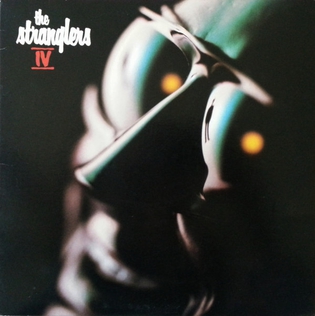
IV is a compilation album by the Stranglers, released on 24 September 1980 on I.R.S. Records and only available in the US and Canada.

Un Jour Parfait is the second solo album by the Stranglers' bassist Jean-Jacques Burnel, released on 23 September 1988 by Epic Records. The album was aimed at the French market and its release limited to certain territories, but was available in the UK as an import. All songs were written in French, except "Garden of Eden".
Keith "Lew" Lewis was an English harmonica player and vocalist, who was a member of Eddie and the Hot Rods before forming his own bands. Influenced in style by Little Walter, he also guested on albums by The Stranglers, The Clash and others.
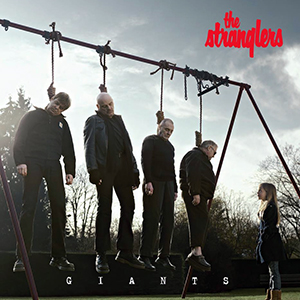
Giants is the seventeenth studio album by English rock band the Stranglers and continues the band's return as a four-piece after the departure of singer Paul Roberts. Lead vocals are shared between guitarist Baz Warne and bassist Jean-Jacques Burnel. The album was released on 5 March 2012 and was supported by an extensive UK tour by the band. It was their last album to feature original drummer Jet Black and the last to be released in keyboard player Dave Greenfield's lifetime.
